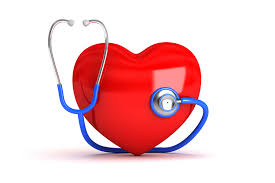Did you know, those diagnosed with celiac disease have an increased risk of cardiovascular diseases? An article published last year found that individuals with celiac disease were almost two times more likely to develop coronary artery disease (CAD), and 1.4 times more likely to have a stroke. The study did not pinpoint the reason behind this association, but co-researcher Dr. Rama Dilip Gajulapalli of Cleveland Clinic, OH, posited that low-grade inflammation in celiac disease would be the likely cause, as the risk of CAD is also higher in other autoimmune disorders like lupus erythematosus, rheumatoid arthritis, and inflammatory bowel disease.
Whether or not you are diagnosed with celiac disease, most Americans are at risk
for heart disease. By following these dietary and lifestyle recommendations, you can help protect your heart from the chronic inflammation of daily life:
- If you are diagnosed with celiac disease, follow a strict gluten-free diet. This may be obvious, but even minor “cheating” or not being mindful of cross-contact with gluten when dining out or in your home may result in chronic inflammation in the body.
- Get the perfect balance of fats. Omega-3 fatty acids are often out-numbered by omega-6 fatty acids, which are more plentiful in the American diet via corn and soy oils. Omega-6 fatty acids are precursors to inflammatory reactions, whereas omega-3 fatty acids can reduce that inflammation. While we need both, make a concerted effort to get enough omega-3s in your diet by eating walnuts, seeds, and fish several times per week, or taking a fish oil supplement daily.
- Start “Meatless Mondays” and “Fatty Fish Fridays” to reduce intake of saturated fat and cholesterol, and increase intake of the essential omega-3 fatty acids mentioned above. Vegetarian sources of protein are naturally cholesterol-free, and come along with essential phytosterols found in plants that counteract and block absorption of cholesterol.

- Eat your antioxidants in plants. Five to seven servings of fruits and vegetables daily will deliver the vitamins and phytochemicals, which neutralize free radicals that would otherwise roam the body, causing damage to veins and arteries.
- Limit sodium and simple sugars. Too much of either can stress the arteries and contribute to heart disease. The most effective way to limit both is to eat more whole foods and reduce packaged foods in your diet.
- Be active. If you’re already active, vary your activity to keep your body working smoothly and not worn down by any one activity. If you’re not currently active, incorporating even a small amount a couple times per week has a significant benefit to your cardiovascular system.
Omega-3-Rich Dinner: Kale Salad With Lemon Salmon
Ingredients:
- 2-3 cups kale leaves, removed from stems
- 1 tsp flaxseed oil
- 1 lemon, juiced
- dash sea salt
- ½ avocado, diced
- chopped walnuts
- 3 tbsp golden raisins
- 1 cup roasted parsnip or sweet potato, diced
Directions:
Tear kale leaves into bite-sized pieces into a bowl and drizzle flaxseed oil over with lemon juice. Massage with hands, similar to kneading dough, for 2-5 minutes, until leaves soften and turn a more vibrant green. By massaging the kale you are making it more digestible and making the nutrients more available to your body. Top with avocado, walnuts, raisins, and parsnip. Eat as is or mix in additional salad dressing of choice.
Salmon with Garlic and Lemon
Rub two salmon filets with fresh minced garlic, drizzle with olive oil, then top with lemon slices and sprinkle a dash of sea salt. Place in foil and fold up the sides to make an envelope that will keep the fish moist. Bake in an oven at 400°F for 20 minutes, or until fish flakes easily with a fork.
